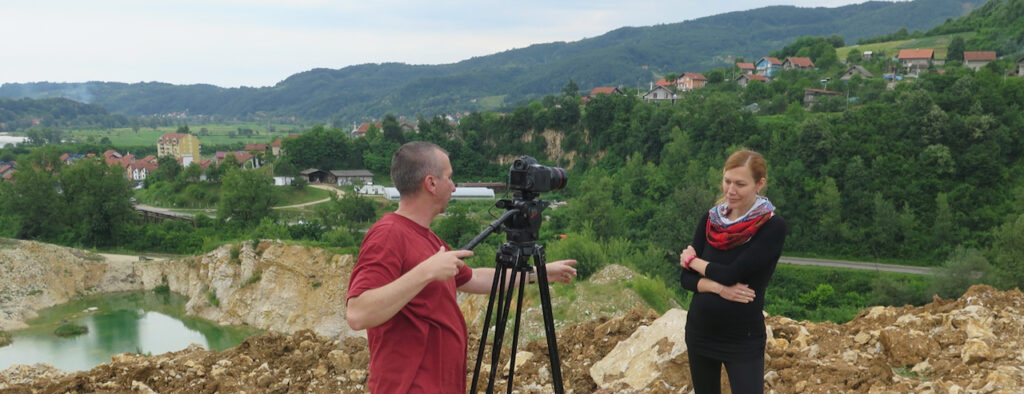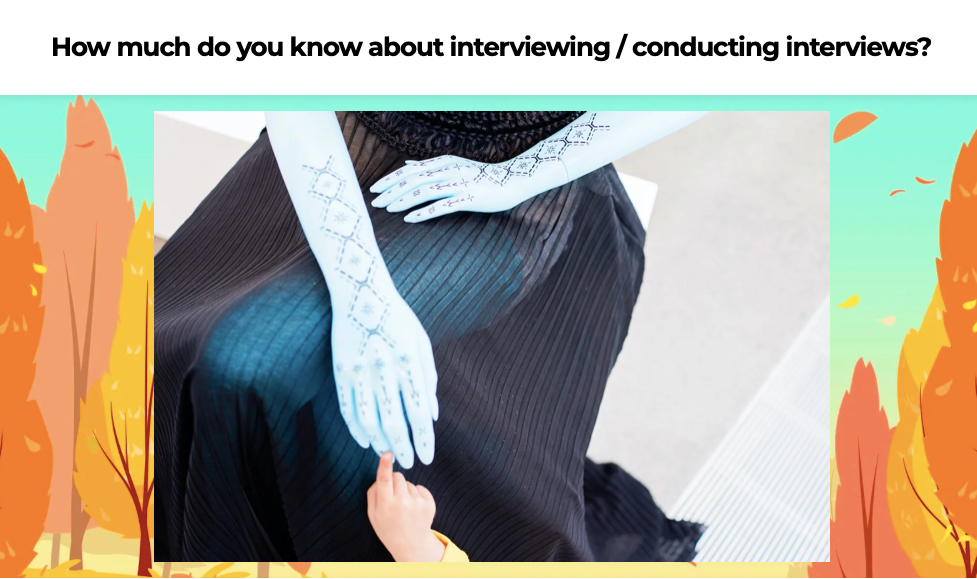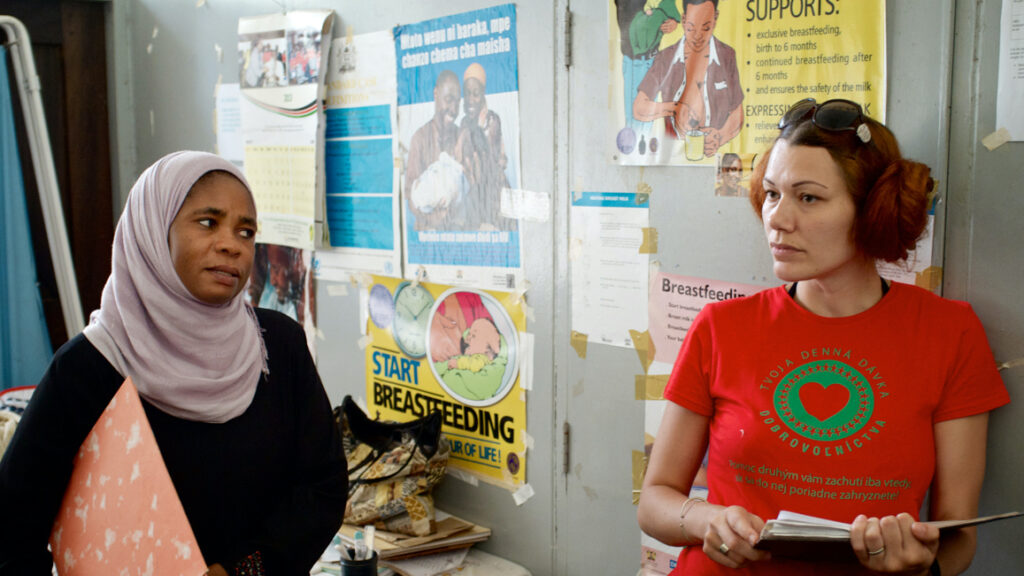Module 4: Covering community activities in the media – > Section 2: How to conduct an interview

An interview is a way of engaging in a conversation with someone and helping her or him share their experience. The interview is also one of the best ways to find your stories and make them more compelling with quotes and anecdotes.
There are plenty of publications and articles online on how to approach people / interviewees and conduct an interview – whether from a journalism perspective or a qualitative research point of view. According to Capacity Canada: Whichever way you come to storytelling, there are some interviewing basics that will help ensure you gather rich information that is as objective as possible. Most revolve around the key tool of any interview: the question.
Questions as key tools of any interview
Before you start, write a short plan of what you want to achieve through the interview and a list of questions to ask. Make sure you:
- Get to know the person before jumping in to the official interview.
- Avoid closed-ended questions (leading to short Yes or No answers).
- Use open-ended questions (starting mostly with What, How and Why).
- Ask simple, straightforward questions without making statements.
- Don’t ask leading or suggesting questions to learn, not to establish your position.
- Work through the silence. An uncomfortable pause might lead to a great story.
- Use follow-up questions to dig deeper into the story or to get more details.
- Prepare. Well prepared you can engage in real conversation and be more spontaneous.
- Don’t overscript. Avoid reading a list of questions off a page instead of listening and having a conversation.
For those of you interested in the craft of interviewing, there is the insightful article by Chip Scanlan from The Poynter Institute for Media Studies on the Power of Questions (The Power of Good Questions).
Interview structure
Even journalists who have done hundreds of interviews sometimes need a refresher on how to conduct an interview with a source. You might get useful this example structure and interview questions prepared by Restless Development and Voluntary Service Overseas (VSO) teams:
- Explain who you are and why you are conducting the interview.
- Establish key information about the person and put them at ease.
- Start to explore the subject area for your interview.
- Dig deeper by asking them to expand on points they have made or to explore the wider impact.
- Explore potential solutions.
- Conclude and wrap-up.

Let’s test your knowledge on how to conduct an interview (and what to think about: Before / During / After the interview). Take a Kahoot Quiz on interviewing now (How much do you know about interviewing?).
If you are still not sure: How closely do you stick to your list of questions; Whether to record answers on your phone or take physical notes; What do you do if the source is in a bad mood – media experts Roy Peter Clark and Annie Aguiar from The Poynter Institute for Media Studies prepared 12 tips on interviewing, listening and note-taking that could improve your next story (An illustrated guide to the basics of interviewing).
While interviewing vulnerable persons
Abuse is based on an imbalance of power, and in an interview the media professional has far more power than a member of a group of vulnerable persons (mostly children). While interviewing people from vulnerable communities you should NEVER:
- force discussion on topics which are painful
- ask questions which put them in danger / humiliation
- publish personal and identifying details without explicit informed consent
- stage a story or ask them to tell a story that they have not experienced
- label them or describe them in a way that might attract an abuse, discrimination or ostracism by their own communities

Remember: You are interviewing to learn. If you are talking, you are not learning anything. So the key is to listen more than you talk. If you want to learn more about How to use your ears more than your mouth, read an important article by a multimedia teacher Al Tompkins from The Poynter Institute for Media Studies (To tell stronger stories, listen rather than ‘interview’).
It’s your turn
You may use your new interviewing skills to capture the voices of those living in your community very soon. Think about how stories from community members could do shape public opinion about your long-term work, specific project and SDG-related activities. Identify at least two potential interviewees within the community and shortly describe them (without using their names) in the discussion forum below. You may think of:
- Elderly community member with an interesting life history.
- Nonprofit worker responsible for running an innovative project in your area.
- Local activist who has brought about social change.
- Representative of a group of vulnerable persons overcoming significant challenges.
